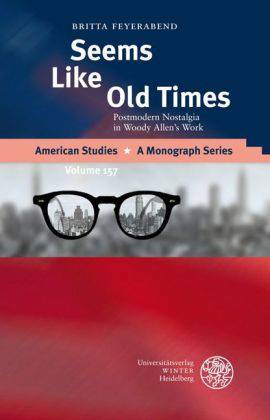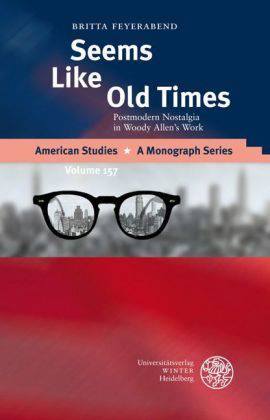
- Afhalen na 1 uur in een winkel met voorraad
- Gratis thuislevering in België vanaf € 30
- Ruim aanbod met 7 miljoen producten
- Afhalen na 1 uur in een winkel met voorraad
- Gratis thuislevering in België vanaf € 30
- Ruim aanbod met 7 miljoen producten
Zoeken
Omschrijving
Woody Allen is one of America's most prolific authors, actors, and auteur film directors. His oeuvre, which spans five decades, has always been marked by a postmodern play with conventions, experimental techniques, and explorations of the status quo of modern urban lives. Yet, Woody Allen is also a nostalgic who makes the history of his nation, his people, and his individual subjects the constant theme of his work. Whether cryogenically frozen Miles Monroe wakes up in the future only to misinform scientists about the past; whether stand-up comedian Alvy Singer reminisces his relationship to Annie Hall; or, whether ophtalmologist Judah Rosenthal is tormented by his memory of his Jewish rabbinical father after having had his girlfriend killed; the past, whether personal or communal, is always an integral part of Allen's characterizations and plots. Contrary to the assumption that postmodernity is necessarily linked to the future only and negates all history, the present study argues that postmodern subjects very much depend on an active evaluation of the past and that, through the lens of history, present crises and traumata can be overcome. In this way, nostalgia manages to bring history back into postmodernism.
Specificaties
Betrokkenen
- Auteur(s):
- Uitgeverij:
Inhoud
- Aantal bladzijden:
- 288
- Taal:
- Engels
- Reeks:
- Reeksnummer:
- nr. 157
Eigenschappen
- Productcode (EAN):
- 9783825353889
- Verschijningsdatum:
- 6/01/2009
- Uitvoering:
- Hardcover
- Formaat:
- Genaaid
- Afmetingen:
- 135 mm x 211 mm
- Gewicht:
- 452 g

Alleen bij Standaard Boekhandel
+ 86 punten op je klantenkaart van Standaard Boekhandel
Beoordelingen
We publiceren alleen reviews die voldoen aan de voorwaarden voor reviews. Bekijk onze voorwaarden voor reviews.







